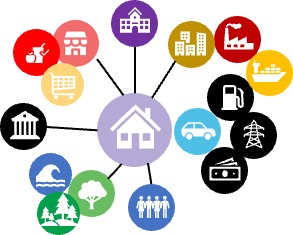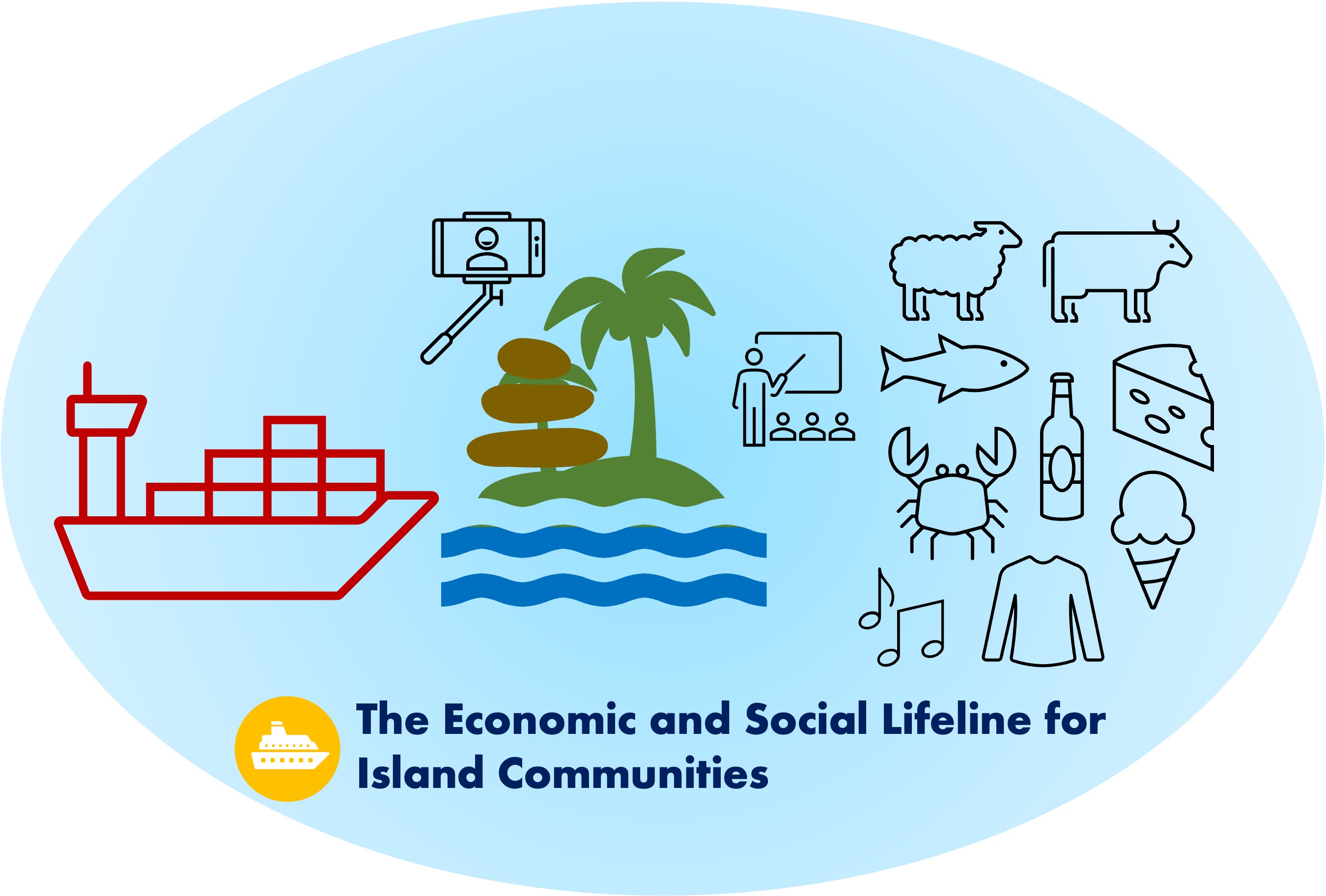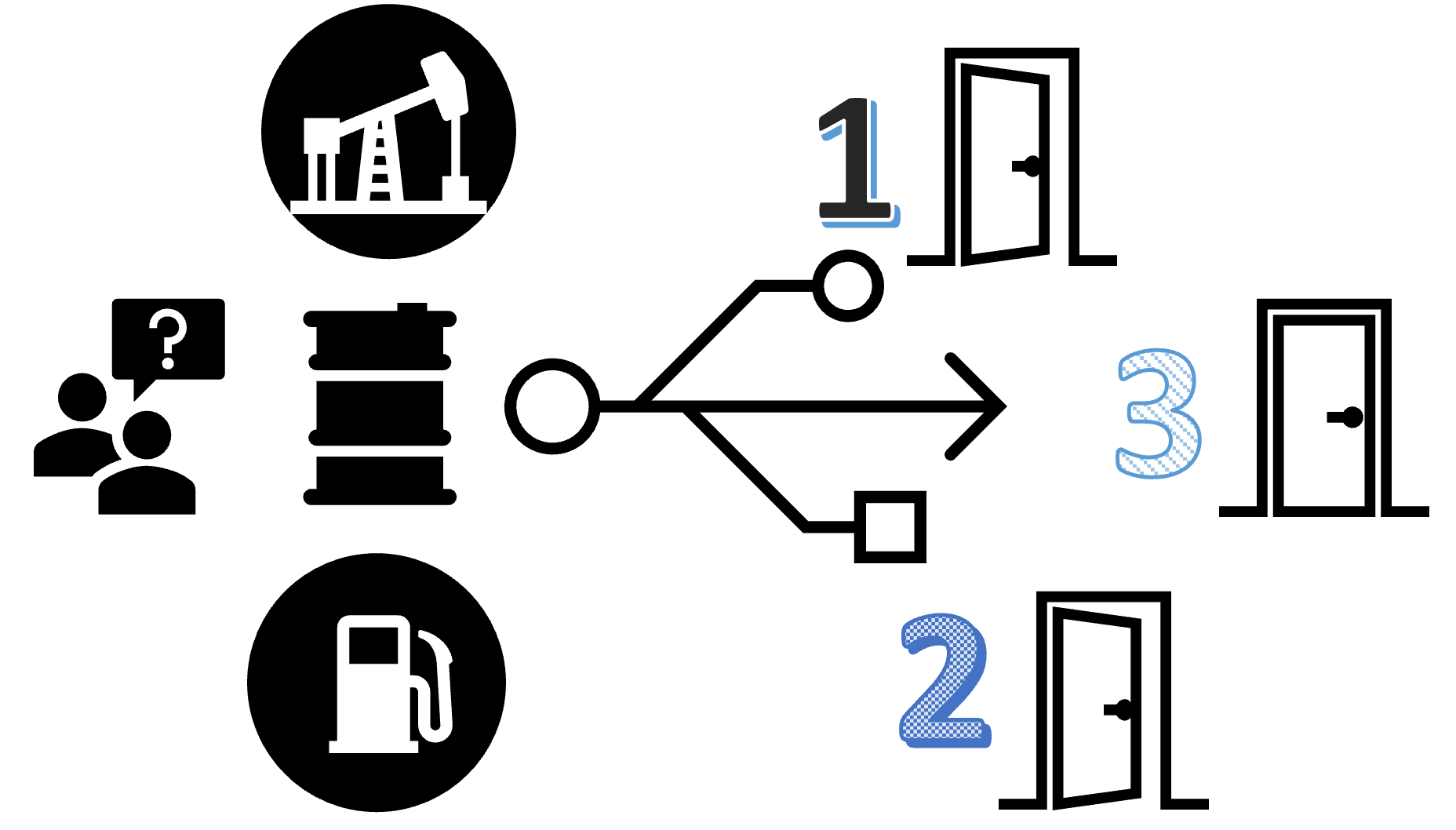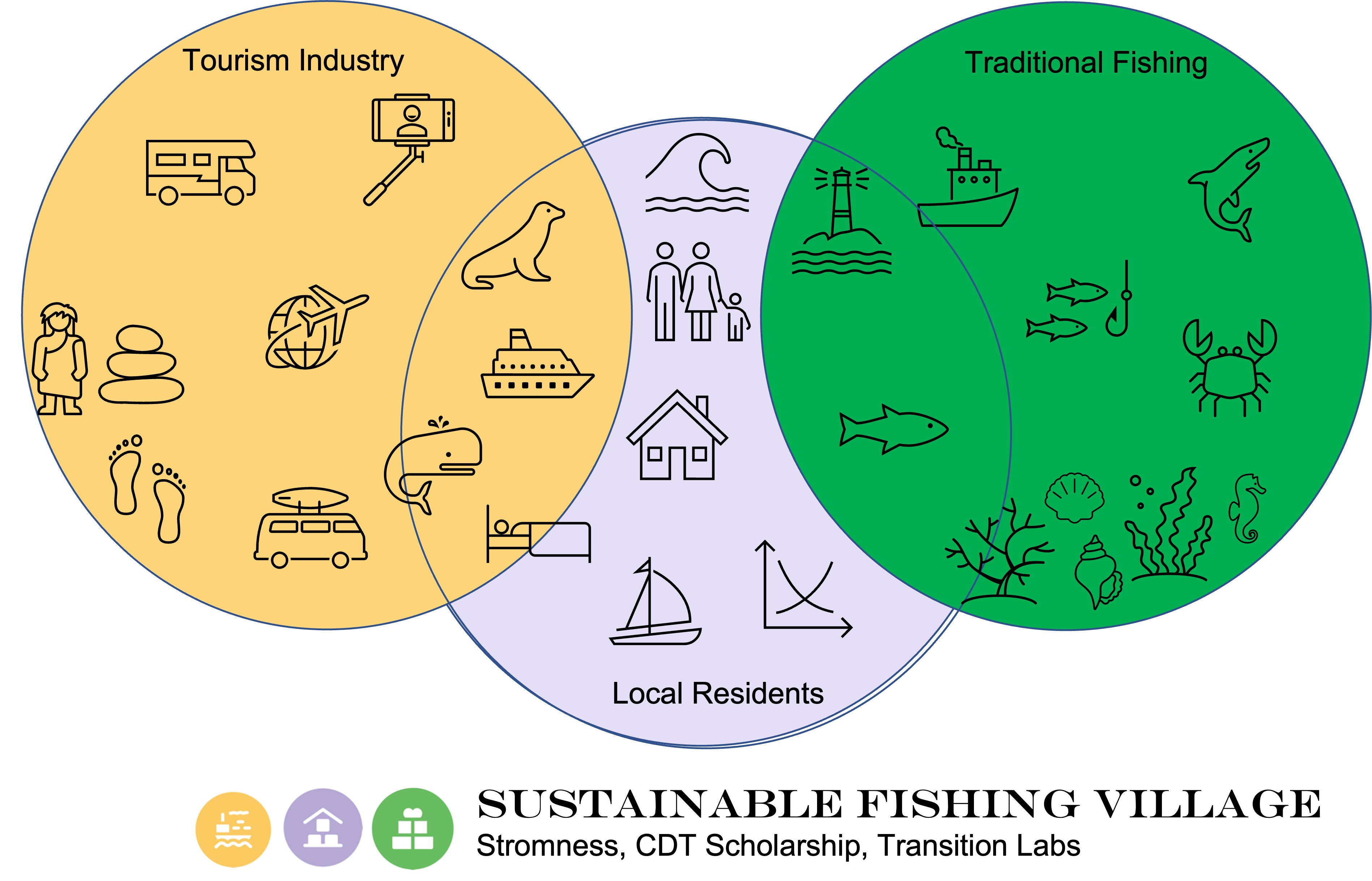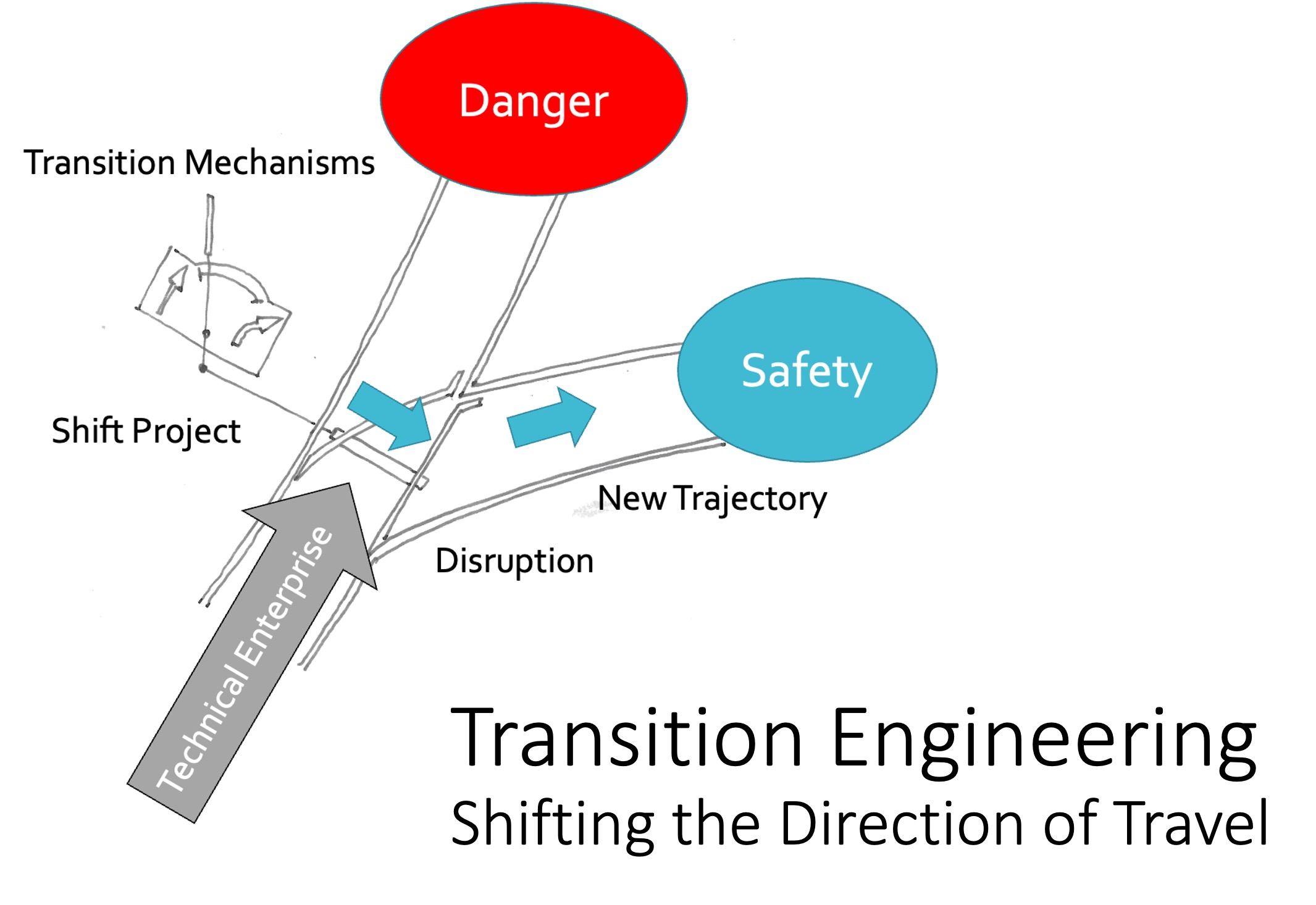Professor Susan Krumdieck, Director and Chair in Energy Transition Engineering
Orkney Campus, Heriot-Watt University

The people of the Orkney, Shetland and Outer Hebrides Islands have taken on the mission of transition to low carbon energy by 2030. The work of the Transition Lab aims to address the competing issues of arresting greenhouse gas emissions, ensuring affordability, providing energy security now and in the long-term, and setting up systems that are economically sustainable and equitable and are embraced by the public. What we learn through our ground-breaking work will provide crucial understanding of how to navigate the challenging transition period of decarbonising heat and transport and managing the de-growth of the oil and gas sector. The Centre’s work is on the ground in the islands, but will contribute to the Scotland and UK advancement of energy governance and innovation. The work of the centre will use a framework that embraces the complexity of ensuring transparency, engineering-informed planning, monitoring and implementation, and continuity of community wellbeing and affordability. Introduction Video
The Challenge
Orkney is internationally recognised for the wind and marine electricity supply that sometimes meet the demands, and sometimes exceeds local loads and exports to Scotland via subsea cable. This high penetration of intermittent generation means that Orkney can provide a large-scale lab for smart grid technologies and ideas from around the world. But electricity is only part of the energy transition. There are paradoxical “wicked problems” throughout all of the energy supply, market, policy and end-use systems. A problem is wicked because it is successful in several respects, but it is also causing harm and it is unsustainable. For example, diesel powered cruise ships provide luxurious holidays for tourists and transport visitors to the islands where they may purchase local goods and services. However fossil fuel is unsustainable and the pollution and scale of tourist surges harm local ecosystems. Decision makers need honest, transparent and rigorous analysis about how best to transition current systems to achieve local objectives, global targets for 80% fossil fuel reduction, and long term community prosperity. The wicked problems arise in the local and system-wide projects of carbon downshift.

Oil dominates the energy supply for Orkney and poses wicked problems for energy transition
Difficult Decisions and Choices
Energy transition will rely on a range of decisions made by actors other than energy suppliers. Government at all levels, industry, organisations, communities and individual households all need accurate and relevant information. All of the options require trade-offs. The investments and benefits needed for energy transition do not fit our expected models. The ICNZ will use ground-up participatory exploration and engineering-informed way-finding through the complex possibility space to comprehend the opportunity space for the next confident steps. This will enable understanding, discussion and acceptance of sober, rational and fruitful decisions.
Guiding Principles
It is imperative that government, utilities, operators and households rely on robust scientific and engineering evidence when making decisions, developing plans and implementing policy. There is a need for significant research, development and training in energy transition at all educational levels. The activities will be carried out in new interdisciplinary ways using methods like “Action Research” and “Problem Based Learning”. There are potentially serious consequences from delaying difficult decisions until changes in existing systems are de-risked and the behaviours of actors are certain. Action Research means deploying known technologies and methods within certain settings, using rigorous scientific research observation and modelling to rapidly generate learning. Results will be reported about both the intended and unintended consequences to the research community and the island communities through local media, virtual workshops and on-line courses. There are no technology or regulatory solutions that will solve the problems of decarbonization, thus we propose to “Learn by Doing” in the range of settings and energy end uses.

The Islands Centre for Net Zero is a partnership with open and dynamic integration
Transition Journey
The ICNZ workflow has five steps along the transition journey, from research, innovation and development, to community participation, data utility and digital assets, to demonstrating and testing transition opportunities and accelerating the value capture and resilience building in transitions.
- Transition Labs
- Community Hubs
- Data Exchange
- Demonstration and Testing
- Accelerator
Transition Engineering Approach
The proposed ground-up approach will ensure that people throughout society around the country can grasp the challenges and see the opportunities of different types of investments, technologies, innovations, behaviours, and policies. We will also develop new understandable and transparent metrics for wellbeing, prosperity, resilience, security, and sustainability that communicate the real value of the transition projects to people today and for generations to come. The action research and the workflow will be guided by the Interdisciplinary Transition Innovation, Management and Engineering (InTIME) process as described in the book Transition Engineering, Building a Sustainable Future.

Real Transition Leaders Across All Sectors
The work of changing incumbent systems is a new and exciting discipline. We tend to call it "Transition Engineering" because it brings a new discipline to the normal work of all engineers in all sectors, much like Safety Engineering has over the past century. The story of the genesis of Safety Engineering provides an inspirational and motivating guiding principle for the work of InTIME Design and Re-Development. Now you can make a significant contribution by becoming a Transition Leader. The new MSc Renewable and Sustainable Energy Transition (ReSET) at Heriot-Watt is a 1-year course designed for graduates from most backgrounds.

The Interdisciplinary Transition Innovation, Management and Engineering (InTIME) Methodology
The Transition Engineering Labs
The Transition Engineering Lab is led by Professor Susan Krumdieck, Chair in Energy Transition Engineering at Heriot-Watt University. The Transition Labs are established around particular energy transition ecosystems in the Islands Centre for Net Zero. The Transition Lab is established as the research and technical facilitator for the Scottish Islands Deal mission to achieve net zero carbon by 2030.[1] In comments on the IPCC Working Group 1 Report[2] the UN Secretary-General stated, “The only way to prevent exceeding this threshold is by urgently stepping up our efforts, and pursuing the most ambitious path.”
Heriot-Watt University Orkney Campus has established the Transition Engineering research and innovation group. The mission for all projects is to identify the barriers, navigate the changes and build the adaptive capacity for energy activity systems to downshift fossil fuel reliance by 80%, while achieving regeneration of biocapacity, equity, autonomy and derived social wealth. These core elements of the complex systems we rely on for survival mean that the work on energy transition is necessarily multidisciplinary and involves working directly with communities, companies and councils using methods of action research. Action research means using the perspective of residents and end users – from the ground up – and doing the research directly with the end users.
Activity Ecosystems and Interdisciplinary Environments
The Transition Labs will tackle energy transition challenges across the six activity ecosystems in a particular place as illustrated below. The research into transition management, tools and data exchange, and in applications of already known tools like Lifecycle Cost Analysis, Scenarios, Input-Output Analysis, Cultural History, etc. are common to all the activity ecosystems.

How will we carry out these projects?
The ICNZ work programme is a processes that begins with the transition challenge at the local, a "from the ground-up" approach as illustrated below. Data and digitising of existing data is an important research topic across all of the areas where fossil fuel is used. The Interdisciplinary Transition Innovation, Management and Engineering (InTIME) methodology will be used for addressing wicked problems of change in all of the research areas. The plan is to form cohorts for each of the streams, and for the PhD students to work to support the InTIME stakeholder journey through action research, complex system analysis, building digital twins, curating data, and participating in innovation and project design and development.

The Transition Lab InTIME Stakeholder Journey© addresses the wicked problems of energy transition
Acceleration of Benefits and Resilience
The biggest challenges are business models for ferries, flights, food, fuels through the transition period. These challenges intersect with community resilience and wellbeing.
TRANSITION ACCELERATOR
The Accelerator supports transport, primary production and manufacturing industries to accelerate their decarbonization journey to achieve Net Zero emissions and managed risks. The Accelerator also works with the Data Exchange and the Community Hubs to accelerate the resilience journey and facilitate interactions with government and industry.
The transition from net zero commitment to tangible action and accomplishment face significant obstacles, ranging from technical and financial hurdles to organisational challenges. One major barrier is the lack of readily available information on practical steps to operationalize the journey towards net zero. The ICNZ aims to build a knowledge value chain with help in the auditing, data, modelling, innovation, research, transition engineering and communications needed for developing and executing the net zero shift. Getting to the Acceleration is a journey, fully supported by whole system InTIME Design, data, modelling and strategic analysis.
How Can You Contribute?
PhD candidates are sought with Masters degrees and additional experience in computer science, modelling, image analysis or engineering, ideally with some experience of applying these skills to other disciplines (e.g. in the life sciences, social sciences, transport, urban form, buildings and built environment, community activities). Top candidates will have good programming skills, preferably in Python, ArcGIS, game development or other advanced programming languages. Knowledge of transportation engineering, building energy science, or freight supply chain would be beneficial.
Masters students in the Renewable and Sustainable Energy Transition (ReSET) MSc programme will be offered dissertation topics working alongside the PhD students and partners in the various topics.
Undergraduate projects and Graduate Apprenticeships can also be carried out in support of transition challenge projects.
Professionals from all fields are sought to participate in the Transition Labs as partners, stakeholders and experts. Participation in a Transition Lab can be a great way to get an introduction to the Transition Engineering process, methods and latest tools.
Members of the community across the Scottish Islands and beyond are invited to participate and contribute in a number of ways. Follow Transition Labs Facebook page to find discussions and provide comments on labs that are underway.

